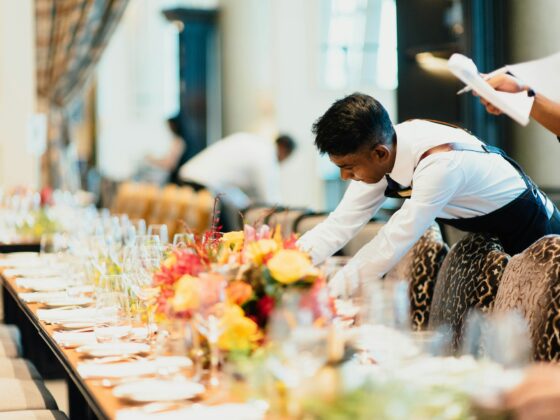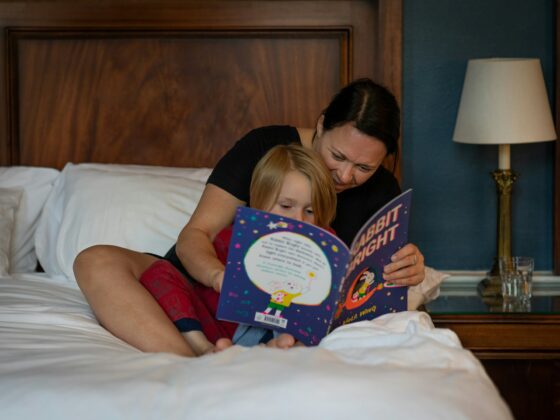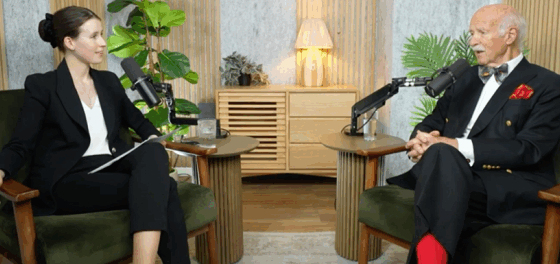Stop obsessing about being different in marketing. Paris Olympics: Airbnb listings almost tripled. AI in hotel bookings versus the IKEA effect. And other news.
Hello,
Earlier this year, I wrote about the PMS Wars. How a handful of players are going to compete for the future of hotel PMS solutions. I estimated it would be a 2 year battle, not sure if that’s optimistic. I guess time will tell.
Podcast: I was invited on the Hospitality Daily Podcast and spoke about technology in hospitality, some thoughts on what wont change in hospitality, and why I co-founded 10minutes.news.
Best, Martin
About me: I'm a fractional CMO for large travel technology companies helping turn them into industry leaders. I'm also the co-founder of 10minutes.news a hotel news media that is unsensational, factual and keeps hoteliers updated on the industry – also it is the most read hotel newsletter in Europe. See the international edition of the newsletter and subscribe to it here or listen the weekly update here. I’m also a co-founder of Klairhaus, a premium office accessories brand that makes products with particular care for craftsmanship and design.
Support the newsletter, treat yourself to great office gadgets.
Is AI the future of travel?
Trip planning is a mix of the “IKEA effect” (the satisfaction of building your own) and search frustrations, in my case, lots of the latter. So AI travel planners are a strange thing, with a promise of “solving search” but then do we really want that. Holidays are often the biggest annual spend, so will we be happy to give that to a bot? In most cases there’s just too much at risk. I’d say we’re willing to let a bot decide on things that we’re willing to waste, but not more. However “is AI the future of travel?” is somewhat like asking if online shopping is the future of shopping. As Google and Sabre suggest, everything will have some level of AI facilitation. But we likely won’t consider it AI, just like we don’t consider spelling correction to be AI anymore.
AI TRAVEL NECESSITY
Post-Olympics Review
I’ve mentioned this before, but the revenue management of rates in Paris for the Olympics were a mess, leaving hotels half-empty and scaring possible customers to do high rates. Lighthouse and Shiji Reviewpro did a post-mortem analysis of what happened and the outcome is quite interesting. A huge increase in supply (via Airbnb rentals) that seems not to have been properly accounted for in the rate strategy and rates that shot up and slowly (why slowly?) went down over a year. And with that lots of unsatisfied guests – in an otherwise exceptionally well managed event.
TOO MUCH SUPPLY?
Expedia’s e-commerce move
Expedia Group’s Travel Shops platform allows influencers to monetize their hotel and accommodation endorsements, integrating social media content with direct booking options. It is a brilliant move, surprising that it was done earlier. Amazon has been doing this for years. Since word of mouth plays a huge role in travel bookings today, being able to find the hotels and trips that an creator we trust has shared is an excellent way to grow distribution. OTAs have the upper-hand here, but maybe hotel’s can figure out how to come up with a solution via one of the global direct marketing platforms.
EXPEDIA INFLUENCER PLATFORM
On managing
This management post thing is becoming a habit. Third in a row. I read the MrBeast (famous Youtuber) onboarding book. We all have onboarding guides for companies and teams etc. But what I liked with this one is that it is written to be read and understood, the focus is clear, what is expected is clear, the way it is expected is clear and all this makes for a better outcome. It isn’t written by a copywriter who has a degree in public relations + law, making something that has all the right keywords and phrases but none of the meaning. Can we learn something from this? Can hotels and tech companies make simple and meaningful onboarding guides like this? As we grow and with more remote-work these buides become more and more valuable.
SUCCESS IN YOUTUBING
Hotel Design and Tech
This very thoughtful article about hotel design and how it enhance guest and staff experience is great. For example replacing natural stone elements with products such as Dekton for better maintenance. Lighting. etc. Basic advice, but things we wished we knew before installing marble in the bathroom (those who know, know). What’s still missing from all the design discussions is how technology really fits in. Not as some kind of add-on gadget, but as a real way to enhance the experience. It is the little things that make the experience, the big things are great for the wow, but the wow is quickly gone. Little things like being able to turn off all lights easily, being able to cast to the TV from one’s phone, USB plugs, speedy check-in/out etc. Even being able to tip by QR code instead of the awkward conversation when one has no cash. All these are part of hotel design. One day they’ll make it on the Interior Designer’s list.
HOTEL DESIGN OPTIMIZATION
THOUGHTS:
There’s an obsession in marketing to be different,
it’s wrong.
The idea that, to be successful in branding, marketing and advertising one needs to be different is the source of plenty of failures. As a friend pointed out – there is no inherent value in being different.
Marketing is about finding agreement with an audience. B2B marketing is about making it safe for the buyer to buy your product. Being different is literally the best way to alienate oneself from the buyers.
Starting off with the idea be-different is a great way to shock the world and get media coverage, but does it make it safe to buy your product? The counter-culture crew will say yes. But the mainstream (where the money is) will wait for things to settle down a bit.
It is a lot more important to figure out how one can identify with a customer’s need than to focus on how one can be different. The be-different trope isn’t the basic of marketing, it is a tactic to use at the right time. The leaders of a category need to work on differentiation. The newcomers need to work on being like the leaders.
Newcomers are already different, they’re new. That is why people are concerned about buying their product. Microsoft got big, because they identified with the old. Tommy Hilfiger became a successful brand because they identified as similar to the others. Nike became a top brand because they went after Adidas.
Sure there are exceptions, huge ones. But trying to emulate only the exceptions is like trying to get the Olympic gold medal in marathon running (621 million people run for sports – only 1 person will get gold. Every 4 years).
Let’s not forget that the foundation of marketing is agreement. One is seeking to get agreement from the market for a product or brand. And yes, one needs to get attention, being different gets attention. But does the attention lead to more agreement? Or less of it?
If you’re going to visit a modern art gallery and someone decided to place a renaissance painting – it will be different, but it probably wont get a lot of love.
Next time you’re in a ideation meeting and everyone is hyper focused on being different, try to think about what will make the customer feel reassured and safe instead.
Let me know what you think on the post.






